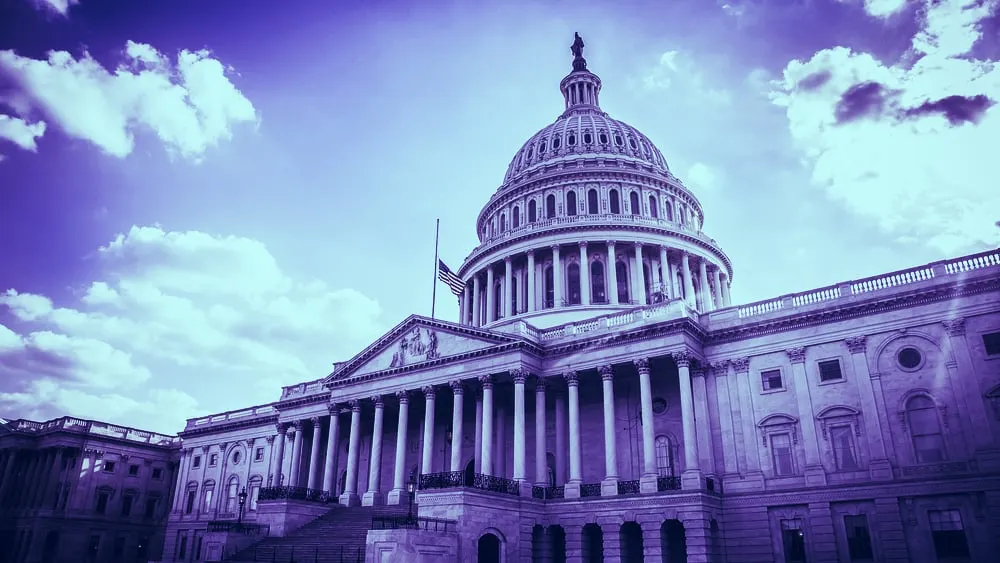
It's crunch time for crypto in Washington, D.C.
A regulatory battle is coming and the federal government is baring its teeth in nasty ways. These include the Treasury Department pushing the global Financial Action Task Force to adopt anti-crypto regulations, and a new spree of investigations by the IRS. Meanwhile, Congress still shows no sign of passing commonsense measures—such as a de minimis tax exemption for crypto transactions under $200—that would make crypto more appealing for consumers.
The situation calls for the crypto industry pushing for clear policy proposals, backed by a crack lobbying game. Alas, the industry is mired instead in schisms and infighting—a situation reflected in the sprawling number of trade groups all purporting to speak for crypto.
Just this week, a new lobbying group sprung up Washington, DC. It involves two of the biggest names in the crypto world, Coinbase and hedge fund Paradigm, and two heavy hitters from the fintech and finance realms, Fidelity and Square. Together, the companies plan to tout the benefits of digital currency to lawmakers under the banner of a trade group called the Crypto Council for Innovation.
At first blush, the arrival of the CCI—and the four rich and influential companies supporting it—looks like good news for the industry. Skeptics, though, say that rather than bolstering the crypto cause, the CCI will fuel the factionalism that has long led the industry to punch below its weight in Washington.
For those who keep track of such things, the CCI is at least the sixth crypto trade group operating in the nation's capital. The most important of the others are the Blockchain Association—an umbrella group from which Coinbase bolted last summer—and Coin Center, a non-profit research center.
Then there is the Association for Digital Assets Markets, an outfit backed by a former Ripple executive that has so far done little of note, and the Digital Chamber of Commerce, which has amassed plenty of members, but which critics deride as a glorified marketing operation for stodgy companies that wish to appear hip to blockchain. Also on the list is an operation called the Virtual Commodities Association, launched by the Winklevoss twins in 2018, all but moribund today.
In theory, more trade groups should mean more lobbying power for the crypto industry. But Washington insiders tell me the opposite is true. They say the arrival of the CCI will make it harder for the industry to deliver a unified message to Congress, and that spreading lobbying funds across multiple organizations will make it harder to influence lawmakers.
Blockchain Association allies are also quietly fuming at Coinbase and Paradigm, accusing them of arrogance and trying to reinvent the rigid rules of politics in the Capitol.
People close to CCI don't see it this way of course. For their part, they claim that a new lobbying group is necessary because the existing ones have failed to exert any real influence or change the narrative, popular in Washington, that crypto is little more than a money-laundering tool. They also claim the Blockchain Association made a fatal error by admitting Binance US—a decision that let the group pocket a $250,000 membership fee. Detractors say the move alarmed lawmakers wary of Binance's potential ties to China.
Both factions—the upstart CCI and those tied to the Blockchain Association—make good arguments. But that's a problem since this schism couldn't come at a worse time for the crypto industry: The U.S. government poses an existential threat to crypto. The industry needs to present a united front.
Instead, as has happened since 2014, when an advocacy group called the Bitcoin Foundation collapsed amid corruption and infighting, the biggest players in crypto remain incapable of working together.
It doesn't have to be this way. Just look at Big Tech, where bitter rivals such as Google, Amazon and Facebook assemble under the same umbrella to push policies favorable to their industry.
"People who are cutthroat competitors in the marketplace realize it makes sense to team up," one Blockchain Association supporter lamented to me. "That’s what mature industries do."
Crypto is not a mature industry, of course, and perhaps it will become one in time. For now, though, crypto companies of all stripes had better hope they can find a way to gain influence in Washington—before the U.S. government undoes much of what they have built.
This is Roberts on Crypto, a weekend column from Decrypt Editor-in-Chief Daniel Roberts and Decrypt Executive Editor Jeff John Roberts. Sign up for the Decrypt email newsletter to receive it in your inbox in the future. And read last weekend's column: Why the NFT Boom Feels So Much Like Gambling.

